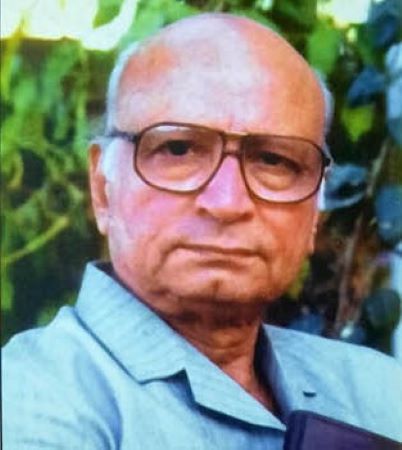
Homage to renowned poet, drama and novel writer, director M. Kamal on his death anniversary, who was born in Kandiaro town of Sindh on Aug 8, 1925, and passed away on Feb 3, 2010 in India
Nasir Aijaz
Mulchand Mangharam Bindrani, known by his pen name M. Kamal, was a multi-faceted personality, and being a renowned Sindhi poet and Dramatist, he is cherished globally in the Sindhi literature community. With a literary career spanning over half a century, he was honored with the prestigious awards.
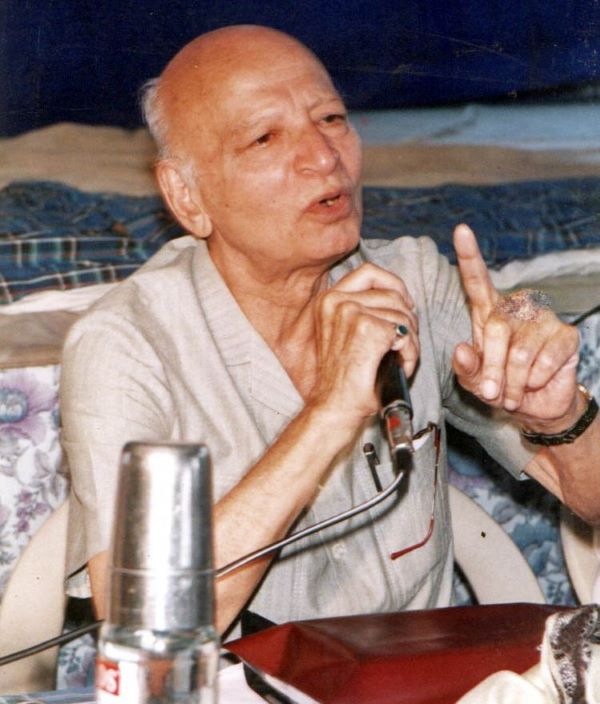 Shri M. Kamal wrote over 40 dramas and over 800 poems including ghazals. In his writings, he always tried to depict the realities of life and gave a new look to the poetic expression. His work has been translated in 3 languages, Hindi, English and Marathi. Also, his specialization in one-act plays led him to establish a Sindhi school of drama named Mehran Kala Manch where directed some of his plays and trained Sindhi artists.
Shri M. Kamal wrote over 40 dramas and over 800 poems including ghazals. In his writings, he always tried to depict the realities of life and gave a new look to the poetic expression. His work has been translated in 3 languages, Hindi, English and Marathi. Also, his specialization in one-act plays led him to establish a Sindhi school of drama named Mehran Kala Manch where directed some of his plays and trained Sindhi artists.
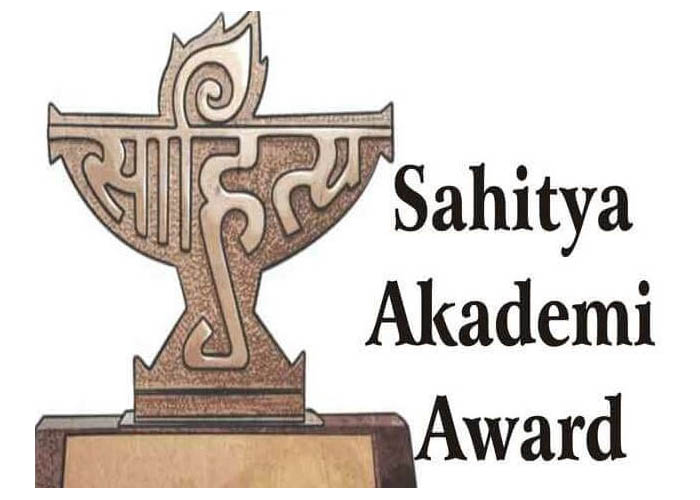 His recognition went beyond vernacular, with his work translated in 3 languages namely Hindi, English & Marathi. He was also recognized as a literary critic of his time. M. Kamal was honored with national award ‘Sahitya Akademi Award’ by government of India in 1989.
His recognition went beyond vernacular, with his work translated in 3 languages namely Hindi, English & Marathi. He was also recognized as a literary critic of his time. M. Kamal was honored with national award ‘Sahitya Akademi Award’ by government of India in 1989.
Life Journey
Shri M. Kamal was born on 8th Aug, 1925 in Kandiaro town of district Naushehro Feroze (Formerly part of the Nawabshah district) of Sindh Province. As a result of partition of Indian subcontinent in 1947, M. Kamal also migrated to India like tens of thousands other Sindhi families leaving behind ancestral abode.
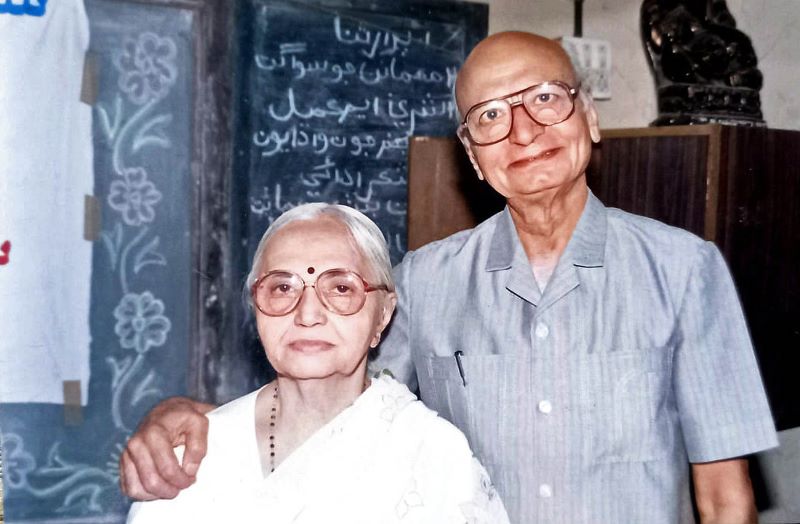
Shortly before the partition, M. Kamal had married to Smt. Parmeshwari. After the partition was announced, M. Kamal left his hometown for Karachi along with family including his wife and father Shri Mangharam. In Karachi, they stayed at the residence of his father’s friend Shri Gokaldas, where he used to live during student life. Shri Gokaldas was his father’s business partner, and Kamal respected him like a father. After a few days, M. Kamal, accompanied by his family, and Shri Gokaldas, boarded a steamer for India. They disembarked at Okhha port of Gujarat state and again traveled in a boat for some distance from where they proceeded to Jaipur by road. For some time, they lived in an area in front of historic Hawa Mahal (Palace) in Jaipur.
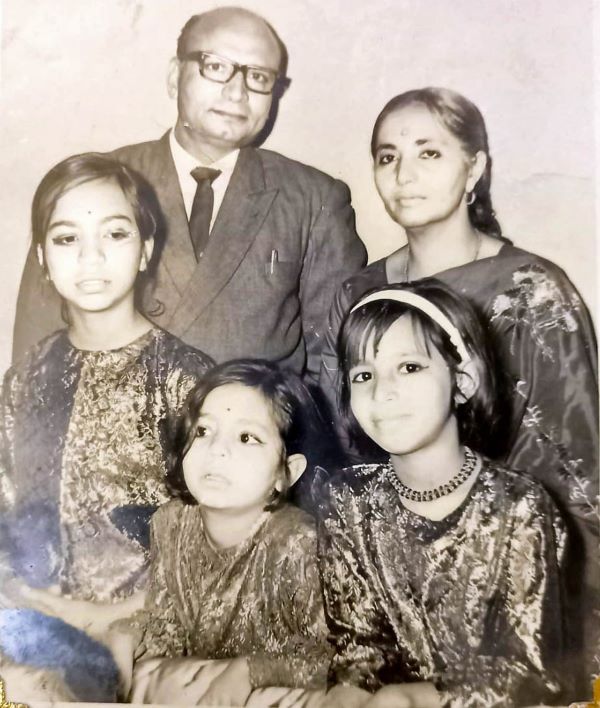
While staying in Jaipur, M. Kamal had applied for the post of Sub Inspector in Police Department. He was selected for the post he had applied for, but the monthly salary of a Sub Inspector in those days was Rs.40, and being a low salary, M. Kamal decided not to join. But he regretted his entire life for not accepting the police job, as often he used to say, “It was my greatest mistake of my life, as I would have retired as Deputy Commissioner of Police.”
Shri M. Kamal lived in Jaipur for short period and later moved to Nagpur with Shri Gokaldas who had got a job of Accountant in a private firm – Kishanchand Chelaram Firm. Soon, M. Kamal also joined Central Railway from where he retired as a Junior Officer of Central Railways’ Commercial Branch in 1983. The railway job at that time was liked by most people. The head office of Central Railway was located in Mumbai, but as living there was not possible for M. Kamal, he settled in Kalyan Camp No: 4 along with his wife Smt. Parmeshwari and one-year daughter Pushpa, and spent his rest of life there.
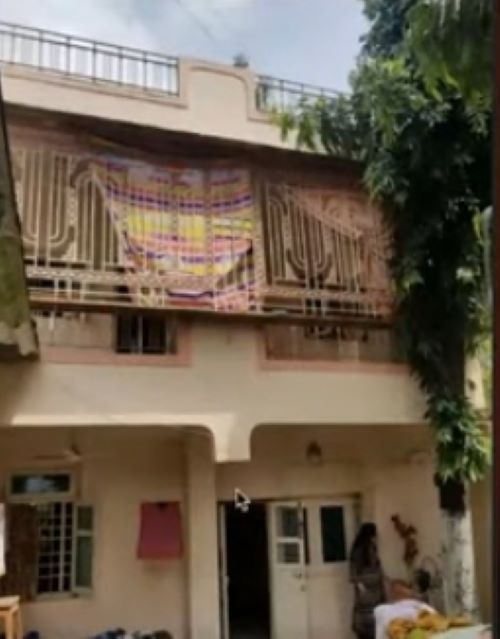
When M. Kamal moved to Kalyan Camp, his father-in-Law Shri Tahalram and mother-in-law Smt. Dharmi Bai also shifted there, because M. Kamal’s wife Smt. Parmeshwari was their only child, and they wanted to settle close to her. Smt. Parmeshwari and M. Kamal’s first child was Pushpa, a daughter, and then a son Nand Bindrani, and four daughters – Asha, Meena, Tara and Vandana were born.
Following the demise of his wife, M. Kamal spent a very tough life. He was confined to bed due to ailment, and even couldn’t speak in last days of life.
Shri M. Kamal, the legend of Sindhi literature breathed his last at the age of 85 on February 3, 2010.
Memories
Shri M. Kamal was the lover of nature and literature. He loved to listen to birds’ chirping, and for that he would wake up early in the morning. “There were mango trees in our house, and a large number of birds used to perch on the trees. Dada would wake up early in the morning, make a cup of tea and taking pen and some books, would sit under the trees, listening to the chirping and taking notes from the books,” Ms. Meena, one of his daughters, recalls speaking in a documentary.

“Dada would sit for hours reading books and taking notes until our mother would ask him to come for breakfast,” she said.
Ms. Meena says, M. Kamal was fond of reading books, and for that he became the member of Asian Library, from where he would bring books. “He would also bring books for us and would sit together to ask what stories did we read, and what we learned from the books.”
“On his return from office, the first question Dada would ask was ‘What the kids are doing?’ and mother would tell him ‘They are in their room reading the books’.”
Shri M. Kamal would go for half an hour walk regularly in the evening.
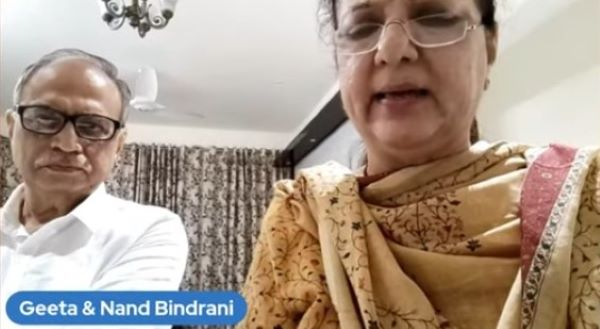
Mr. Nand Bindrani, also shared views briefly about his father in same documentary. “Dada was a great writer and poet. This we realize today while reading his literary works. His demise was a great loss to Sindhi literature. Sindhi literature would have been at its height if Dada lived longer.”
Views of Scholars
Shri Vasdev Mohi (2 March 1944 – 27 August 2021), himself a well-known writer and scholar, considered Sri M. Kamal as ‘Master of Ghazal writing’. “In my view, M. Kamal was Master of Ghazal writing, because he, not only wrote a large number of Ghazals, but he had a unique and distinct diction in Ghazal writing. He used simple but impressive words in Ghazals that would touch the heart of readers and listeners,” Late Vasdev Mohi had commented in a recorded message.
“M. Kamal kept close eye on what is happening in the society, and would depict it impressively in his poetry.”
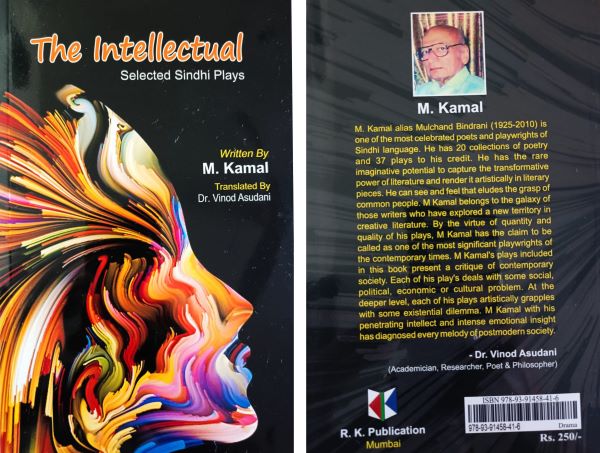
Shri M. Kamal was Shakespeare of Sindhi Literature
Another Scholar Mr. Vinod Asudani, who had translated one of M. Kamal’s books, and six plays into English, said, “M. Kamal was a great creative genius.”
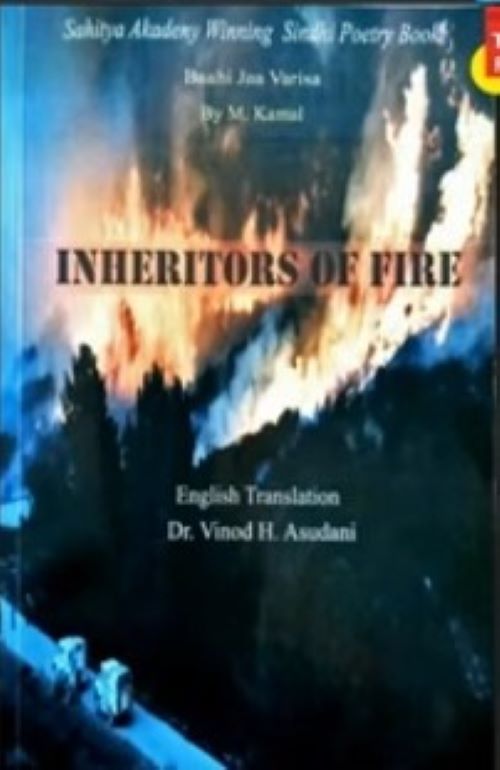
“M. Kamal was the Shakespeare of Sindhi Literature who authored 40 plays and over 800 Ghazals, ever any other Sindhi writer has written,” he said paying tribute to M. Kamal.
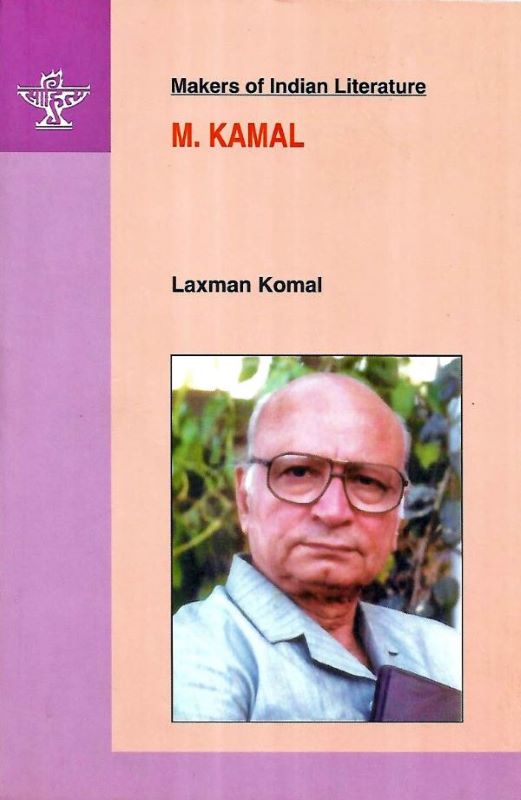 “He should be known all over the world being a great man of letters. It doesn’t make any difference if he was a Sindhi writer, as most of the great writers of the world wrote in their own mother tongue, and their works were translated later in other language,” Mr. Vinod said and exhorted the younger generation of Sindhis to read the literary works of stalwarts of Sindhi literature like M. Kamal.
“He should be known all over the world being a great man of letters. It doesn’t make any difference if he was a Sindhi writer, as most of the great writers of the world wrote in their own mother tongue, and their works were translated later in other language,” Mr. Vinod said and exhorted the younger generation of Sindhis to read the literary works of stalwarts of Sindhi literature like M. Kamal.
“M. Kamal had his own diction in Ghazal writing that reflected the socio-cultural aspects of Sindhi society in post-partition era,” Mr. Vinod Asudani said.
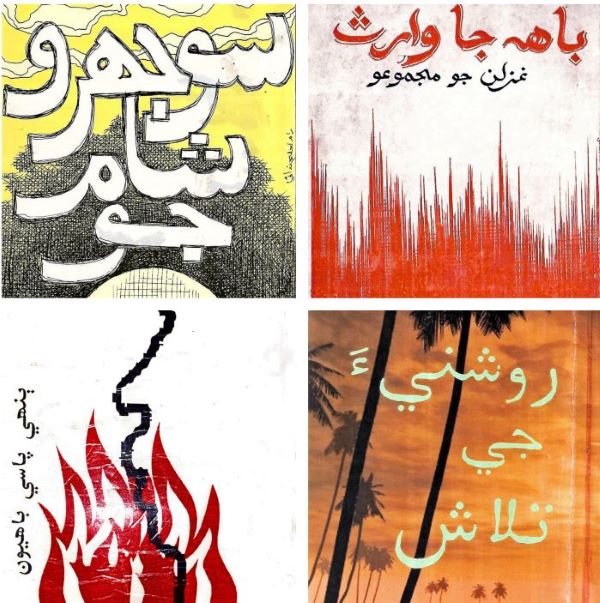
Literary Work
Here is the list of some of the books of M. Kamal.
Sindhi Poetry: Nind Ain Jagh; Jhuriyal Jeeo; Gharandhar Barf Ja Naksh; Roshan Rahoon; Punjah Ghazal; Baah-Ja-Waris; Meranjhiro Thak; Soch Ja Pachha; Ujayal Laher; Sahmiyal Sham; Sojhro Sham Jo; Bini Pase Bahiyoon; Manu Mure Hi Natho; Aakhree Dham; Likayal Jagha; Hik Baraat; Larkhariyal Laat; Choond Ghazal; Bas Gano Thiyo.
Sindhi Drama: Municipal Councilor; Natak; Machis Kithe Aahe; Khoto Sikko; Khush Khabri; All India Police Station; Fram me Marhiyal Shaksh.
Posthumous Publications
Inheritors of Fire (Baah-Ja-Waris, a Sahitya Akademi winner book translated by Dr. Vinod H. Asudani)
Budhijeevi (Collection of Experimental Dramas translated by Dr. Santosh Motwani)
Agneepath (Collection of Sindhi Poetry & Ghazals translated by Smt. Geeta Bindrani)
- Kamal (Contribution to Sindhi Literature by Dr. Jagdish Lachhani)
[Acknowledgement: I owe thanks to renowned poet and artist Mr. Nari Lachhwani of Hirdaram Nagar, Madhya Pradesh who helped me to contact Mr. Nand Bindrani, who shared website link, video links and some pages from the biographical book of his father]
____________________
Unfortunately the partition brought disaster to Sind literature Mostly Sindhi migrated to India lost the rich heritage.Most of them didn’t settle and adjusted to Indian culture so left for other regions in far east West europ.